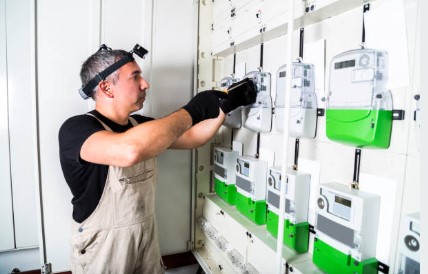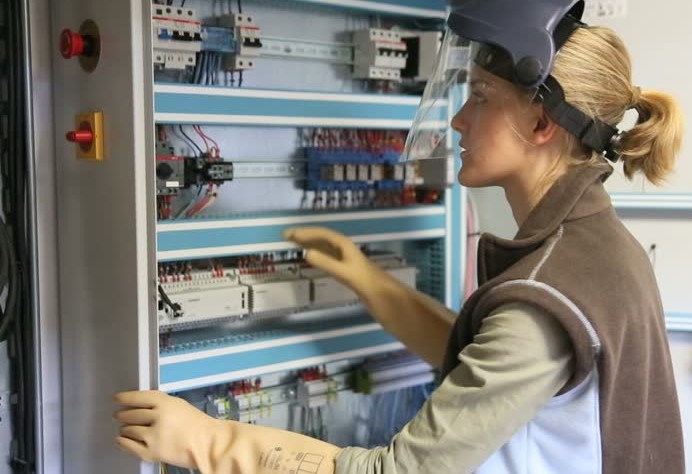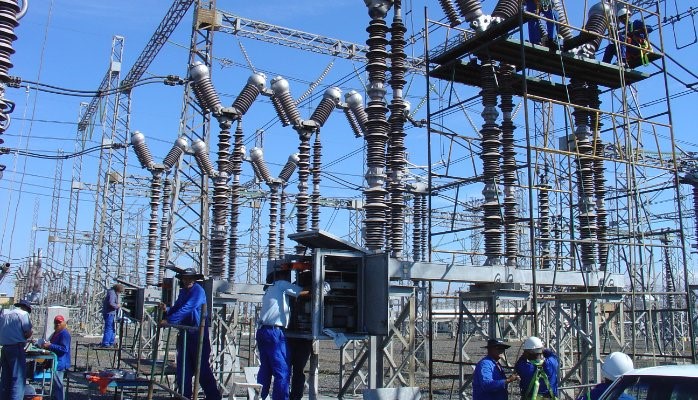COURSE OVERVIEW
EE0092 : Power System Analysis

OVERVIEW
| COURSE TITLE | : | EE0092 : Power System Analysis |
| COURSE DATE | : | May 04 - May 08 2025 |
| DURATION | : | 5 Days |
| INSTRUCTOR | : | Mr. Herman Eksten |
| VENUE | : | Dubai, UAE |
| COURSE FEE | : | $ 5500 |
| Request For Course Outline | ||
Course Description
This practical and highly-interactive course includes various practical sessions and exercises. Theory learnt will be applied using our state-of-the-art simulators.
This course provides recommended practices, methods and a reference tool for the analysis of industrial and commercial power systems. It covers a thorough analysis of the power system data required and the techniques most commonly used in computer-aided analysis in order to perform specific power system studies of short circuit, load flow, motor-starting, cable ampacity, stability, harmonic analysis, switching transient, reliability, ground mat, protective coordination, DC auxiliary power system and power system modeling.
At the conclusion of this course, the participants will be familiarized with the purpose for and techniques involved in power system studies including the principles involved in data acquisition in support of power system studies, the purpose of system studies during the design stage of power distribution systems and the purpose of system studies for existing power distribution systems as well as the advantages of power system analysis software in the design of complex modern power systems, the benefits and restraints associated with the critical analytical solution methods that are available or are the basis for valid techniques in solving power system problems.
Further, each participants will be able to apply and gain systematic techniques involved in modeling a power transformer, the techniques involved in modeling overhead power lines, the per unit system for expressing variables in power system calculation, the purpose for and the techniques involved in a transformer tap study including the critical aspects of a system load flow study and its use in power system design, the use of the load flow study to access power system performance and voltage profiles.
The course will describe the concept of Thevenin's equivalent as well as the purpose for and techniques involved in short circuit analysis, the purpose for and techniques involved in determining the DC component of fault current, the concept of and the techniques for power system modeling. It will explain how to model power system loads and their differences for power system calculations and studies, how to model generators in power system calculations and studies including the methods utilized by computer programs for power system analysis and the various factors affecting the results and accuracy of short circuit studies. It will discuss the salient principles, methodologies and computational procedures suggested by the North American IEEE and ANSI C37 standards in accordance with the international standard for short circuit calculations (IEC 60909, 1988) and the conceptual and computational deviations from C37 standards.
The course further covers the definition of stability, steady state stability, transient, and dynamic stability, the use of stability studies to determine load-shedding schemes and critical fault clearing times for setting protective relays, starting torque analysis for electric motors and the need for motor starting studies, the use of motor starting studies to determine power system performance, the use of motor starting studies to select the optimum starting method, the motor design requirements and the system design requirements to minimize the impact of motor starting on the entire power system including the use of motor starting studies to determine if a starting device is needed and its characteristics and ratings, the information required for performing motor starting studies and some common assumptions used in the absence of more precise data. It provides the concepts involved in studies of harmonic analysis of industrial and commercial power systems, the need for harmonic analysis and recognition of potential problems in power systems and the the required data for harmonic analysis, corrective measures that can be taken, and the benefits of using a computer as a tool for harmonic analysis.
The course is designed to apply the classical analytical methods used to solve switching transients, the typical circuit parameters used for transient studies, power system reliability assessment and evaluation methods based on probability theory including the use of reliability indexes for different system designs to evaluate the impact on service reliability and cost of changes in component reliability. It will employ the FMEA (failure mode and effects analysis) for power distribution systems including the solution of cable ampacity problems with computer software systems with emphasis on underground installations. Further, it will also identify the various items that affect cable ampacity, the primary purpose of a ground mat study, the theoretical background behind ground mat studies and its application in the design of ground mats by computer program as well as discuss the objective of a protective scheme in a power system, the application of computer and computer software to time-current coordination studies including the basics of coordination, the use of coordination software and the application of DC power system analysis.
link to course overview PDF
TRAINING METHODOLOGY
This interactive training course includes the following training methodologies:
LecturesPractical Workshops & Work Presentations
Hands-on Practical Exercises & Case Studies
Simulators (Hardware & Software) & Videos
In an unlikely event, the course instructor may modify the above training methodology for technical reasons.
VIRTUAL TRAINING (IF APPLICABLE)
If this course is delivered online as a Virtual Training, the following limitations will be applicable:
| Certificates | : | Only soft copy certificates will be issued |
| Training Materials | : | Only soft copy materials will be issued |
| Training Methodology | : | 80% theory, 20% practical |
| Training Program | : | 4 hours per day, from 09:30 to 13:30 |
RELATED COURSES

EE0290 : Power Systems Design
- Date: May 11 - May 15 / 3 Days
- Location: Dubai, UAE
- Course Details Register

EE0170 : Generator Excitation Systems & AVR: Selection, Commissioning, Operation, Maintenance, Testing & Troubleshooting
- Date: May 11 - May 15 / 3 Days
- Location: Dubai, UAE
- Course Details Register

EE0409 : Certified Energy Professional
- Date: May 11 - May 15 / 3 Days
- Location: Kuwait City, Kuwait
- Course Details Register

EE0050 : HV/MV Substation Design, Installation, Commissioning, Testing, Operation, Control & Maintenance
- Date: May 11 - May 15 / 3 Days
- Location: Cairo, Egypt
- Course Details Register
